Why does Putin need to use nukes, as revealed by a top Russian politician?
Putin is facing a crisis of leadership after his unsuccessful attempt to invade Ukraine. The world is watching his every move, and many doubt his competence and credibility. He may soon feel the need to use nuclear weapons to shift the focus from his defeat. Read on to find out how some Russians are backing Putin’s nuclear option against Ukraine, the unlikely hero of this conflict 🚀🇺🇦😱
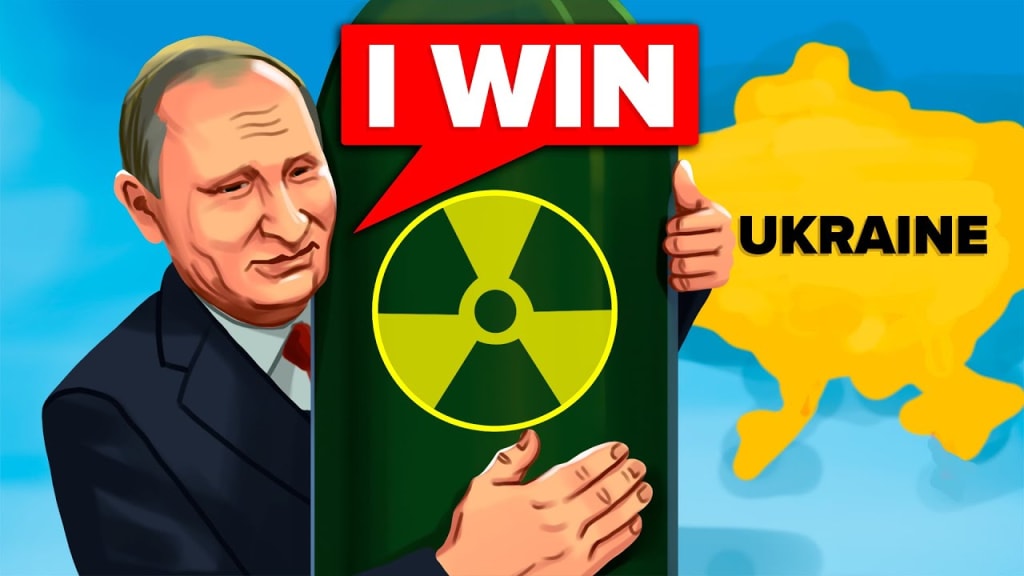
Putin is facing a crisis of leadership after his unsuccessful attempt to invade Ukraine. The world is watching his every move, and many doubt his competence and credibility. He may soon feel the need to use nuclear weapons to shift the focus from his defeat. Read on to find out how some Russians are backing Putin’s nuclear option against Ukraine, the unlikely hero of this conflict 🚀🇺🇦😱
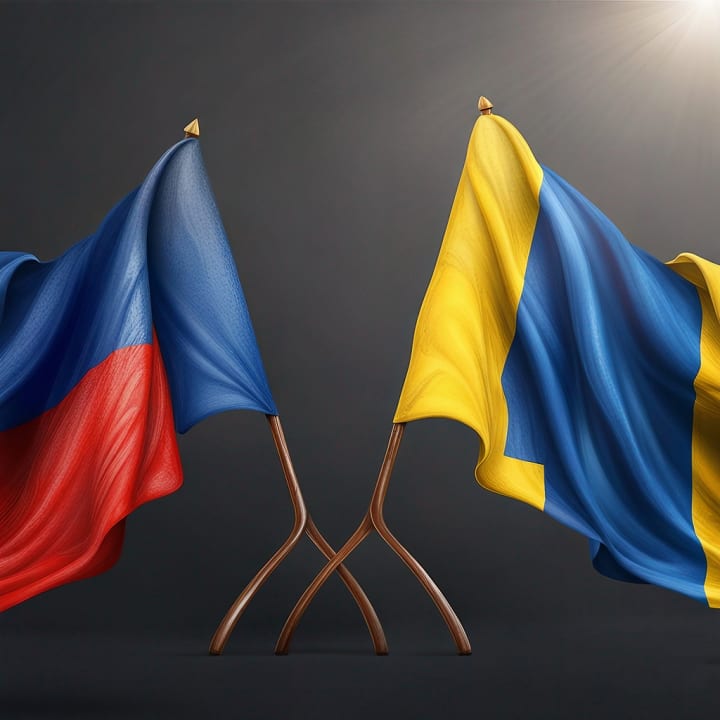
The War Between Ukraine and Russia: A Possible Nuclear Nightmare
The conflict between Ukraine and Russia has been raging for more than a year, and has escalated to a point where a nuclear war could become a reality. In this blog post, I will explore the background, the scenario, the analysis, and the conclusion of this possible nuclear nightmare.
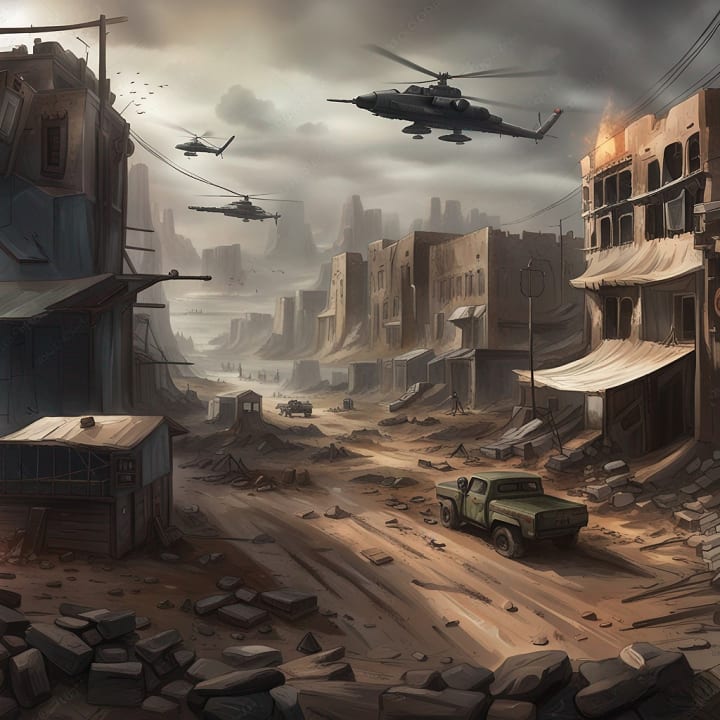
Background
The war between Ukraine and Russia started in February 2022, when Russia invaded Ukraine and quickly seized control of large parts of the country, including Crimea and Donbass. Russia claimed that it was protecting the rights of the Russian-speaking minorities in these regions, but many saw it as an attempt to restore its former Soviet glory and influence.
Ukraine resisted the invasion with the help of NATO and other allies, who provided military aid, training, and sanctions to Ukraine. Ukraine launched a counteroffensive in June 2023, and has managed to regain some territory from Russia. However, the situation remains tense and unstable, with frequent clashes, missile strikes, drone attacks, and casualties on both sides.
The war has also sparked a global crisis, with many countries imposing sanctions on Russia and providing military aid to Ukraine. Russia has threatened to use tactical nuclear weapons if it faces a strategic defeat, and has accused NATO of provoking a world war. The international community has called for a peaceful resolution of the conflict, but so far no diplomatic breakthrough has been achieved.
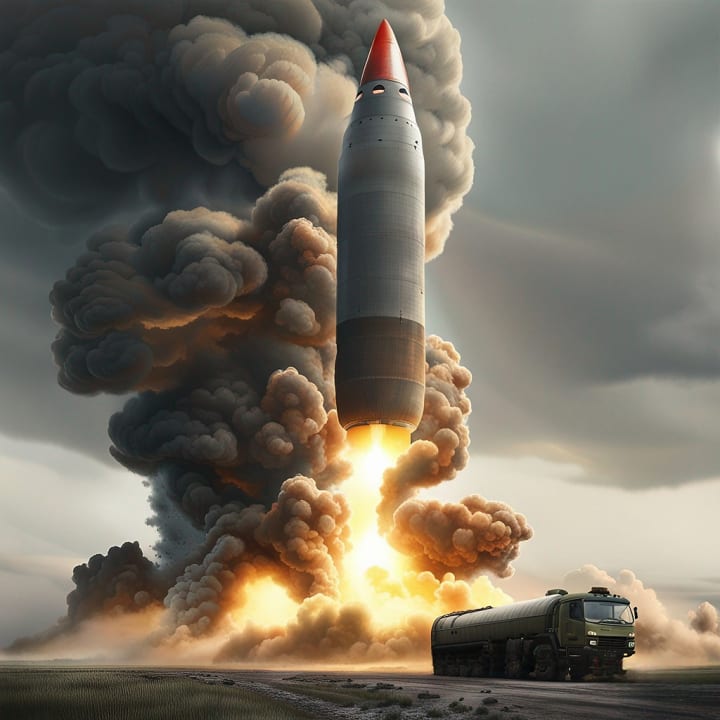
Scenario
One of the most alarming aspects of the war is the possibility of Russia using tactical nuclear weapons against Ukraine. These are low-yield nuclear devices that are designed to be used on the battlefield, rather than against cities or strategic targets. They typically have a yield of less than 10 kilotons, which is equivalent to 10,000 tons of TNT. For comparison, the bomb dropped on Hiroshima had a yield of 15 kilotons.
According to Dmitry Rogozin, former director general of Russia's Roscosmos space agency and deputy prime minister in charge of the defense industry, Russia must use nuclear weapons to stop the Ukrainian counterattack. He said that there is no other way for Russia to defeat the Ukrainian offensive, which has better tech and training compared to the Russians. He also said that according to Russian doctrine, the nation is fully within its rights to use tactical nuclear weapons, pointing out that preventing such strategic reversals as is expected of the counterattack is why they exist.
Rogozin's statement was met with shock and condemnation by many in the world, who warned that using nuclear weapons would have catastrophic consequences for both sides and beyond. However, some analysts believe that Rogozin's statement was not just a bluff or a threat, but a realistic assessment of Russia's situation and options.
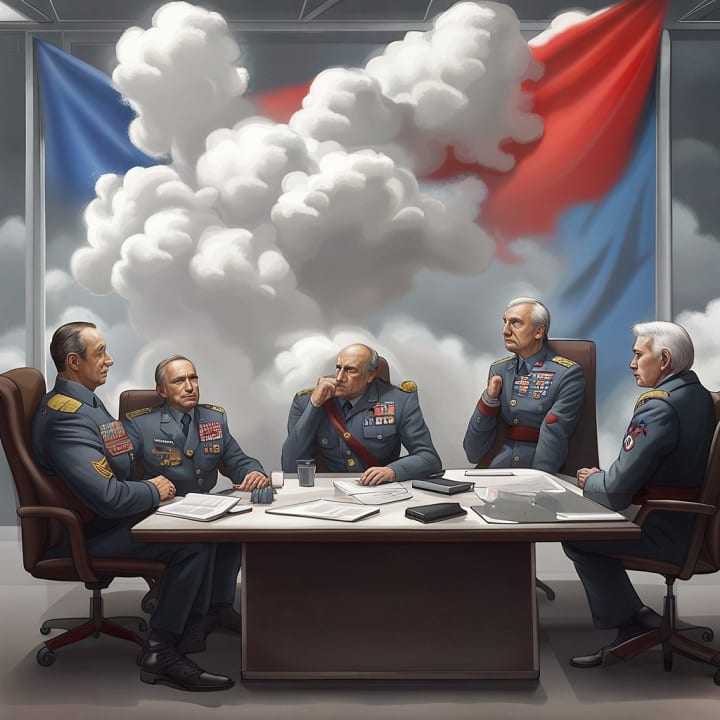
Analysis
The question is: would tactical nuclear weapons work for Russia? And what would be the consequences?
The answer is: it depends on several factors, such as the number, the type, the target, and the response.
First, let's look at the number. How many tactical nuclear weapons would Russia need to use to have a significant impact on the war? The answer is: a lot.
Armies don't operate in massive clumped formations like in Napoleonic times, but instead spread out over large swathes of territory to avoid enemy reconnaissance or bombardment. The real trick is to be able to rapidly reconstitute your forces to create penetrating fists of men and armor that punch through weak points, before dispersing once more in the enemy rear. And this is exactly what Ukraine has been learning to do from its NATO teachers for the last six months.
This means that Ukrainian forces are not vulnerable to tactical nuclear weapons, and lobbing one at a mass of Ukrainian armor may at best score a dozen vehicles destroyed, and a dozen more disabled. Western tanks like the Abrams were designed to operate in a nuclear environment, and while details are highly classified, many estimates state that the tank itself would survive a 15 kiloton blast 500 meters away. The crew would need a bit more distance than that to survive the shockwave effect, though the tank itself would be sufficient to protect from most of the radiation effects.
When you've got an offensive front spread out across several hundred kilometers, suddenly you need more than one tactical nuke to have a real battlefield impact- and you also have to remember that your own forces are going to be subject to the effect of the nuke. One Defense department source estimated that for Russia to have a significant impact on the war, it would need to use nearly 100 tactical nuclear weapons spread out across the entire front. Anything less than that and Ukraine's forces are simply too widely dispersed to be affected- just in the battle of Vuhledar alone, more Russian tanks were destroyed than a single tactical weapon could potentially destroy.
Second, let's look at the type. What kind of tactical nuclear weapons would Russia use? The answer is: groundburst. Tactical nuclear weapons can be detonated in different ways, such as airburst or groundburst. Airburst means that the weapon is detonated in the air, above the target. Groundburst means that the weapon is detonated on the ground, at or near the target.
The difference is important, because it affects the amount of radiation and fallout produced by the weapon. In normal airburst configuration, nuclear weapons blow most of their radiation upwards and into space, and create very little fallout. Contrary to popular opinion, ground zero of an airburst detonation would be accessible without protective gear within days of detonation.
But in a groundburst configuration, nuclear weapons create a lot of nuclear fallout, and this fallout would be exactly what Russia would want to show off. During the Cold War, the UK had a similar idea and even toyed with the idea of deploying nuclear land mines in west Germany- if only briefly. These nuclear weapons would cause massive irradiation of the countryside, denying access to the enemy who would be forced to seek an alternate route that could be more easily defended. Eventually the UK got nervous about East Germany's reactions to discovering their absolutely insane plan to irradiate half their country in order to defend it and canceled its nuclear land mine program.
Russia could use tactical nuclear weapons to create large swathes of irradiated territory and deny it to the Ukrainians. However, once more Russia would need to use dozens of weapons to achieve its desired effect, and then there's the problem of fallout. Russia, as most people with a map know, borders Ukraine. The prevailing winds over Europe blow west to east, earning them the name of the 'westerlies'. That means that the fallout from nuclear detonations in Ukraine isn't going to remain in Ukraine much longer, and instead end up irradiating huge swathes of Russian territory. With winds right now also blowing south, it'll move a lot of fallout high up in the stratosphere onto Turkey and Africa or the Middle East beyond it.
Third, let's look at the target. What kind of targets would Russia aim for with its tactical nuclear weapons? The answer is: both military and civilian. Russia has already shown that it is willing to target Ukraine's civilian infrastructure with its conventional weapons, such as missiles and drones. It has tried to destroy or damage Ukraine's power plants, dams, bridges, railways, and communication networks. However, these attacks have largely failed to achieve their intended effects, as Ukraine has been able to repair or restore most of its infrastructure within hours or days.
Russia could use tactical nuclear weapons to try to inflict more damage on Ukraine's civilian infrastructure, hoping to cripple its economy and morale. However, this would also backfire on Russia, as it would increase the international condemnation and isolation of Russia, as well as provoke a stronger response from Ukraine and its allies. Moreover, it would not guarantee a military victory for Russia, as Ukraine has shown that it can fight on despite the hardships and losses.
Fourth, let's look at the response. How would Ukraine and its allies react to Russia's use of tactical nuclear weapons? The answer is: with fury and force.
The use of nuclear weapons by Russia would be a game-changer in the war, and would trigger a series of actions and reactions that could escalate the conflict to a global level. Here are some possible responses:
- Ukraine would retaliate with its own nuclear weapons. Ukraine gave up its nuclear arsenal in 1994 in exchange for security guarantees from Russia, the US, and the UK. However, some experts believe that Ukraine still has some secret nuclear capabilities, such as warheads or materials that could be quickly assembled into bombs. Ukraine could also receive nuclear assistance from its allies, such as Israel or Pakistan.
- The US would launch a conventional military attack on Russia's troops in Ukraine and/or its Black Sea fleet. The US has warned that there would be “catastrophic consequences” if Russia used nuclear weapons in Ukraine. President Biden sent a delegation to speak with the Russian ambassador to lay out the exact consequences in private, though the public remains in the dark. It has been postulated that the use of nuclear weapons in Ukraine by Russia would prompt an immediate conventional military response by the United States against Russian troops in Ukraine and/or an attack on the Black Sea fleet itself to impose a crippling punishment on Russia. At this point, Russia has few illusions about its ability to defend its troops in Ukraine or its Black Sea fleet from a US military attack.
- NATO would invoke Article 5 and declare war on Russia. Article 5 is the core principle of NATO's collective defense, which states that an attack on one is an attack on all. If Russia used nuclear weapons against Ukraine, a NATO member, it would trigger a collective response from all NATO members, who would declare war on Russia and mobilize their forces to defend Ukraine and deter further aggression from Russia.
- The UN would impose more sanctions and resolutions on Russia. The UN has already condemned Russia’s invasion of Ukraine and called for a ceasefire and a political solution. However, these efforts have been largely ignored or vetoed by Russia, which is a permanent member of the Security Council. If Russia used nuclear weapons in Ukraine, it would face more pressure and isolation from the international community, who would impose more sanctions and resolutions on Russia to stop its nuclear aggression and hold it accountable for its actions.
- China would withdraw its support from Russia. China has been a reluctant ally of Russia in the war, providing some economic and diplomatic assistance, but also trying to maintain a neutral stance and a good relationship with both sides. China has also been trying to broker a peace deal between Ukraine and Russia, hoping to gain more influence and prestige in the world. However, if Russia used nuclear weapons in Ukraine, China would have to pull any remaining support from Russia, as it would violate China’s no first use policy on its own nuclear stockpile. To not condemn Russia’s use of nukes would risk turning China into a fellow pariah state- precisely when it’s trying to prove to the world that it’s a major political power by brokering a peace deal between the two warring sides. With its own desire to invade and annex Taiwan, China is already finding itself put into a very uncomfortable position by Putin’s unexpected and disastrous invasion.
These are just some of the possible responses that could follow Russia’s use of tactical nuclear weapons in Ukraine. There are many other factors and variables that could affect the outcome of the war, such as the public opinion, the media coverage, the cyber warfare, the covert operations, the humanitarian crisis, and the environmental impact. The bottom line is: using nuclear weapons would not guarantee a victory for Russia, but rather a disaster for everyone.

Conclusion
The war between Ukraine and Russia is a complex and dangerous conflict that could have dire consequences for both sides and the world. The use of tactical nuclear weapons by Russia is a possible scenario that could escalate the war to a nuclear level, but it is not a wise or effective option for Russia. It would not only fail to achieve its military objectives, but also provoke a strong and violent response from Ukraine and its allies, as well as isolate and alienate Russia from the international community. Moreover, it would cause massive environmental damage and radiation exposure to millions of people, not only in Ukraine, but also in Russia and neighboring regions.
📝 Sources: https://pastebin.com/RP5MUWTL






Comments
There are no comments for this story
Be the first to respond and start the conversation.